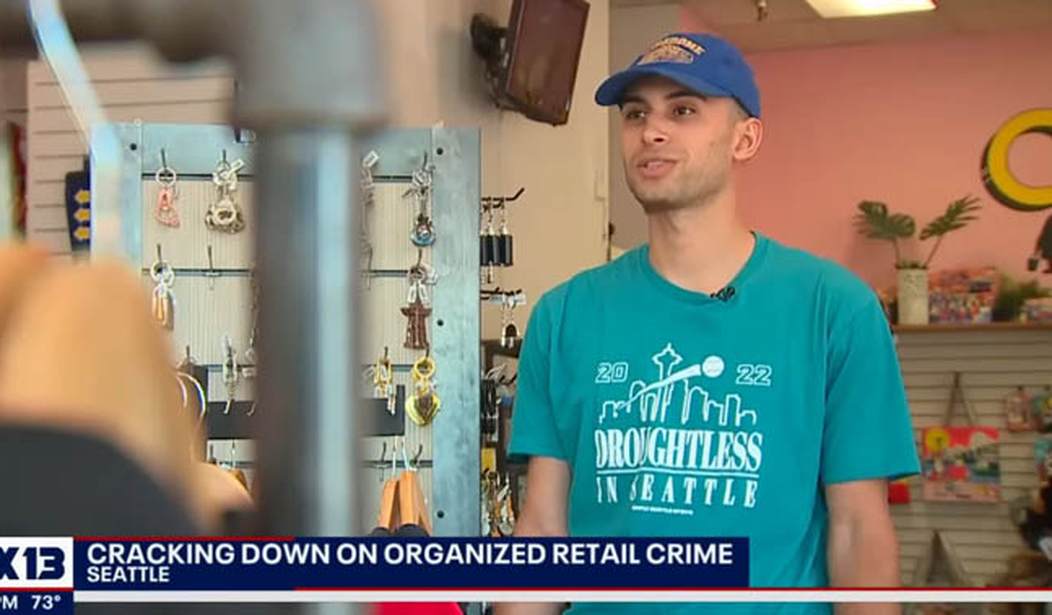The Christian Science Monitor published a story on organized retail theft yesterday which opened with this example:
At a clothing store in downtown Seattle, a woman approaches the exit during the busy lunch hour. A security guard smiles at her. But when she passes through metal detectors at the store entrance, security tags inside her shopping bag trigger an alarm.
“Ma’am?” says the security guard.
Without turning around, the woman starts running. The guard dashes after her and stops her on the street outside.
“She actually did purchase a couple items, but she also stole a couple items,” says the security guard, who asked not to be identified. “Between 9 a.m. and 8 p.m., I say we probably catch 10 to 12 [thieves].”
This is not a rare occurrence in Seattle. According to a city councilwoman, the city has the 8th highest level of organized retail theft in the nation. This week the city auditor published a report describing how these gangs operate.
The city’s shops and stores are under constant attack from organized retail theft rings that operate in a massive underground supply chain.
That basically sums up a report from Seattle’s City Auditor’s Office that looks into the recent rise of organized retail theft. In a nutshell, there are fences and boosters. Fences are like the managers. They look at the market to find what buyers want. Fences give a list to boosters. On that list are items for them to steal from stores. Once the goods are acquired, the fences pay the boosters, then turn around and sell the merch, most likely online.
“One of the things that we learned is that a bottle of perfume may be stolen in North Seattle and within 24 hours, it is on a shipping container destined for sale overseas,” researcher Claudia Shader recently told the City Council’s Public Safety and Human Services Committee.
Seattle police devote an immense amount of time to these crimes but even so it’s more than they can handle.
In 2022, Seattle Police spent 18,615 hours responding to organized retail crime calls. That equals a year’s worth of work for nine officers…
Seattle Police say due to staffing and resources, they cannot properly investigate retail theft organizations, investigate cases or conduct in-custody interviews with suspects.
Huh, I wonder why Seattle police are short staffed? I can’t think of any reason. It just sort of happened, I guess. Now retail workers are stuck with the consequences day in and day out.
Derek Pinder is the assistant manager for Simply Seattle. He says on any given day, he’ll have three to five people come into the store trying to shoplift.
“There’s no real consequences for their actions. So, it is just continuing to expand,” he claimed.
So to sum this up, organized gangs have moved in to the business of retail theft and, thanks to BLM activists and progressive city council members who wanted desperately to defund the police back in 2020, the city can’t begin to get a handle on this crime. The people who see it up close know this is hurting them but the city’s plans probably won’t accomplish much given that there are only so many ways to rearrange police resources when they are badly short-staffed. On top of all of that, you still have progressives who are desperate to defend the progressive prosecutors and progressive judges who helped create this problem.
Thomas Hogan, an adjunct fellow at the Manhattan Institute and a former district attorney in Chester County, Pennsylvania, says that a more efficient solution is to get tough on crime at a local level. He criticizes a new wave of progressive prosecutors who won’t prosecute shoplifters unless the value of their stolen goods reaches a higher threshold than before. Under California’s Proposition 47, which passed in 2014, stealing anything worth less than $950 now constitutes a misdemeanor rather than a felony.
“If you decide, and announce, that you are not going to prosecute shoplifting, you’re going to have a lot of people shoplifting,” says Mr. Hogan.
Others say the numbers don’t support that claim. They point to a 2018 Pew Charitable Trusts study finding that crimes fell in states that raised the threshold amounts for felonies.
This isn’t a tough one to figure out. If you change the law such that thefts under $1,000 are a misdemeanor which progressive DA’s probably won’t charge in the majority of cases, retailers quickly realize there’s no point in even calling the police.
Here’s a report from Fox 13 Seattle. As you’ll see, even in the few minutes their reporter visited one of the hotspots in the city he saw shoplifting happening nearby.








Join the conversation as a VIP Member